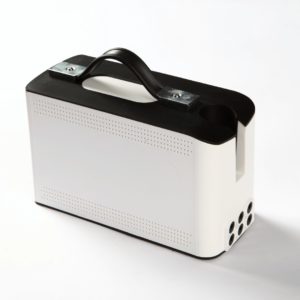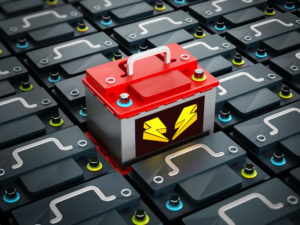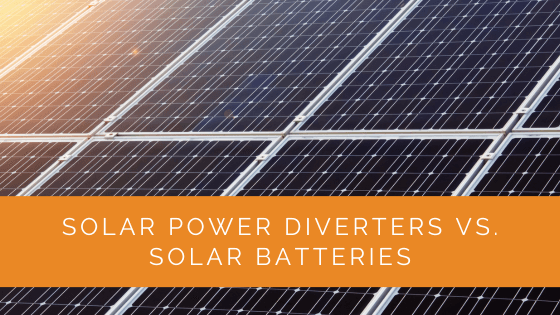Solar energy has emerged as a crucial player in renewable power generation in a world increasingly focused on sustainability. The utilization of solar panels to capture the sun’s energy has gained immense popularity, offering homeowners an environmentally friendly and cost-effective source of electricity. However, when optimizing this abundant energy resource, homeowners often face a critical decision: implementing solar power diverters or investing in solar batteries. This guide will delve deep into these two innovative technologies, providing you with the knowledge needed to make an informed choice for your solar panel system.
Contents
- 1 Key Takeaways
- 2 Solar Power Diverters
- 3 Solar Batteries
- 4 Case Study: Optimizing Solar Energy with Diverters and Batteries
- 5 Expert Insights From Our Solar Panel Installers About Solar Power Diverters vs. Solar Batteries
- 6 Experience Solar Excellence with Us!
- 7 Conclusion
Key Takeaways
- Solar power diverters are cost-effective devices that efficiently utilize surplus solar energy to heat water, reducing energy bills and promoting green energy utilization for daytime use.
- Solar batteries offer comprehensive energy storage solutions, providing grid independence and reliable backup power during outages, making them suitable for homeowners seeking complete energy self-sufficiency.
- The choice between solar power diverters and solar batteries depends on your specific energy needs, budget, and long-term goals, with both options contributing to a more sustainable and energy-efficient future.
Solar Power Diverters
How Solar Power Diverters Work
Harnessing Solar Energy: Solar Panel System Basics
Before we embark on our journey into the world of solar power diverters, it is essential to grasp the fundamental principles of a solar panel system. Solar panels, typically installed on rooftops or open spaces, capture sunlight and convert it into electricity. This electricity, commonly called solar power, is initially generated as direct current (DC) and must be converted into alternating current (AC) to be suitable for household consumption.
Diverting Surplus Solar Energy to Hot Water
One of the primary challenges associated with solar power is that it is not always consumed at the same rate it is generated. During sunny days or periods of peak sunlight, your solar panels may produce a surplus of electricity, exceeding your immediate consumption needs. It is precisely in this scenario that solar power diverters come into play.
Solar power diverters, exemplified by popular models like the Immersun or Eddi, operate by continuously monitoring the output of your solar photovoltaic (PV) system. They are designed to redirect any excess electricity your solar panels generate to your immersion heater or hot water tank. This ingenious process transforms surplus solar energy into a valuable resource: hot water.
Benefits of Using Solar Power Diverters
- Cost-Effective Energy Storage: Solar power diverters offer an economical solution for storing surplus solar energy without expensive battery systems. This affordability makes them attractive for homeowners seeking to maximize their solar investment.
- Minimizing Energy Bills with Diverters: By harnessing excess solar energy to heat your water, solar power diverters substantially reduce your reliance on grid power. The result? Significant savings on your energy bills, allowing you to enjoy the benefits of solar energy while keeping your expenses in check.
- Green Energy Utilization: Incorporating solar power diverters into your solar PV system aligns with sustainability and environmental responsibility principles. By reducing your dependence on conventional grid power, you actively contribute to reducing carbon emissions and promoting clean, green energy.

Solar Power Diverters vs. Solar Batteries
Cost-Effective Energy Storage
Cost is among the most significant differences between solar power diverters and batteries. Solar power diverters are relatively affordable and can be seamlessly integrated into your existing solar PV system with minimal modifications. In contrast, solar batteries, exemplified by renowned options like the Tesla Powerwall, involve a more substantial upfront investment.
Grid Power vs. Solar Power Diverters: A Comparison
Solar power diverters are designed to directly utilize surplus solar energy directly, significantly reducing your reliance on grid power during daylight hours. This approach is especially advantageous when solar panels operate at peak efficiency on sunny days.
In contrast, solar batteries store excess energy for later use. They provide a more comprehensive solution for energy independence, ensuring you have a reliable power supply even during nighttime or cloudy days. This extended energy availability makes solar batteries attractive for homeowners seeking an uninterrupted electricity supply.
Minimizing Energy Bills with Diverters
One of the primary advantages of solar power diverters is their remarkable ability to lower energy bills. By efficiently converting surplus solar energy into hot water, these devices ensure that every bit of sunshine contributes to reducing your reliance on grid power.
The Role of Solar PV in Diverter Systems
Solar power diverters are highly compatible with solar PV systems, making them a natural choice for homeowners who have already invested in solar panels. They seamlessly integrate into your existing setup, optimizing your solar energy usage without requiring extensive alterations.
Pros and Cons of Solar Power Diverters
Pros
- Cost-Effective: Solar power diverters provide a budget-friendly solution for storing excess solar energy.
- Reduced Energy Bills: You can substantially reduce your monthly energy expenses by harnessing surplus solar energy for water heating.
- Minimal Setup Requirements: Installing a solar power diverter is a straightforward process that requires minimal modifications to your existing solar PV system.
- Green Energy Utilization: Utilizing solar power diverters aligns with eco-friendly principles, as it reduces your carbon footprint and promotes the use of clean, renewable energy sources.
Cons
- Limited Energy Storage: Solar power diverters are designed for daytime use only and may not meet your energy needs during the evening or on cloudy days.
- Not Suitable for Year-Round Energy Needs: Depending solely on diverters, they may not provide sufficient energy during seasons with reduced sunlight.

Solar Batteries
Understanding Solar Batteries
Battery Storage for Solar Energy: An Overview
Solar batteries, also known as energy storage systems, represent a significant leap forward in renewable energy utilization. Unlike solar power diverters, which focus on the immediate utilization of surplus energy, solar batteries are engineered to store excess solar energy for later use. This stored energy can be deployed during periods of reduced sunlight or even during grid outages.
Grid Independence and Reliable Backup Power
One of the most compelling advantages of solar batteries is their ability to grant homeowners a higher degree of grid independence. When the sun sets, or cloudy weather prevails, solar batteries kick into action, supplying your home with the stored energy needed to power essential appliances and systems.
Solar batteries can be invaluable in regions where grid reliability is a concern. They offer peace of mind, knowing that your home will continue to have access to electricity, even in the face of grid failures.
Solar Batteries vs. Solar Power Diverters: Key Differences
While both solar power diverters and solar batteries aim to optimize the use of solar energy, their functions and benefits differ significantly. Solar batteries are designed to provide comprehensive energy storage solutions, making them ideal for homeowners seeking complete energy self-sufficiency.
Exploring the Advantages of Battery Storage
- Evaluating the Costs and ROI of Solar Batteries: Solar batteries require a more substantial initial investment than solar power diverters. However, this investment can yield significant long-term savings by reducing your dependence on grid power and offering greater energy autonomy.
- Reliable Power Supply During Grid Failures: Solar batteries shine during grid outages, providing you with a reliable source of backup power. This can be especially critical for essential appliances and systems that must remain operational, such as medical equipment or security systems.
- Enhancing Energy Sustainability with Batteries: By storing surplus solar energy during sunny days and releasing it during peak demand hours, solar batteries help ease the burden on the grid and promote sustainable energy practices.
Pros and Cons of Solar Battery Systems
Pros
- Comprehensive Energy Storage: Solar batteries offer extensive energy storage capabilities, ensuring you have access to electricity even during extended periods of reduced sunlight.
- Reliable Backup Power: Solar batteries provide a reliable backup power source during grid failures, ensuring that critical appliances and systems remain operational.
- Reduced Grid Dependence: Using stored solar energy reduces your reliance on conventional grid power, potentially leading to lower electricity bills.
- Enhanced Energy Sustainability: Solar batteries contribute to a more sustainable energy ecosystem by smoothing out energy demand and reducing grid strain.
Cons
- Higher Upfront Cost: The initial cost of purchasing and installing solar batteries is higher than diverters.
- Maintenance Requirements: Solar batteries require periodic maintenance to ensure optimal performance and longevity.
- Limited Battery Lifespan: Batteries have a finite lifespan, typically between 10 and 20 years, and may require replacement over time.
Case Study: Optimizing Solar Energy with Diverters and Batteries
Background
At Solar Panels Network USA, we worked with a homeowner who recently installed a solar panel system and wanted to optimize the use of their solar energy. The primary goal was to reduce reliance on grid power and cut down on energy bills while ensuring a reliable power supply during outages.
Project Overview
The homeowner faced a choice between installing solar power diverters or solar batteries. Our task was to analyze their energy consumption patterns, budget, and long-term goals to recommend the best solution. The key objectives were to:
- Maximize the use of solar energy.
- Provide a reliable power supply during grid outages.
- Offer a cost-effective solution with long-term benefits.
Implementation
We began by evaluating the homeowner’s energy usage and preferences. Based on this assessment, we decided to implement both solar power diverters and solar batteries in a hybrid system to meet their needs comprehensively.
- Solar Power Diverters: Installed Immersun solar power diverters to direct excess solar energy to the home’s water heating system. This setup ensured immediate savings on energy bills by reducing the need for grid power during the day.
- Solar Batteries: Integrated Tesla Powerwall batteries to store surplus solar energy. These batteries provided a reliable backup power source during nighttime and grid outages, ensuring continuous power supply for essential appliances.
Key components and features of the installation included:
- High-Efficiency Solar Panels: Maximized energy capture from sunlight.
- Immersun Solar Power Diverters: Redirected excess energy to heat water.
- Tesla Powerwall Batteries: Stored surplus energy for later use and provided backup power.
Results
The implementation of this hybrid system yielded significant benefits:
- Cost Savings: The solar power diverters effectively reduced daytime energy bills by utilizing excess solar energy for water heating.
- Energy Independence: The solar batteries provided reliable backup power during grid outages, enhancing the homeowner’s energy security.
- Sustainability: By optimizing the use of solar energy, the homeowner significantly reduced their carbon footprint and promoted sustainable energy practices.
- Long-Term ROI: Despite the higher initial investment in batteries, the combined system offered substantial long-term savings and energy efficiency.
Summary
Our project demonstrated the advantages of combining solar power diverters and solar batteries for comprehensive energy optimization. By harnessing surplus solar energy during the day and storing it for later use, we provided the homeowner with cost savings, energy independence, and enhanced sustainability. This case study highlights the effectiveness of a hybrid approach in maximizing the benefits of solar energy systems.
Expert Insights From Our Solar Panel Installers About Solar Power Diverters vs. Solar Batteries
Solar power diverters are fantastic for homeowners who want to make the most of their excess solar energy without the high upfront costs of batteries. They’re simple to install and can significantly reduce your energy bills by heating your water with surplus power.
Solar Energy Specialist
While solar batteries require a higher initial investment, they offer unparalleled grid independence and reliable backup power during outages. They’re ideal for those looking to ensure continuous power supply regardless of weather conditions or grid reliability.
Senior Solar Consultant
Choosing between solar power diverters and solar batteries depends largely on your energy needs and long-term goals. Diverters are great for immediate savings and efficiency, whereas batteries provide comprehensive energy storage and long-term sustainability.
Solar Installation Expert
Experience Solar Excellence with Us!
Trust in Solar Panels Network USA, where our seasoned experts deliver top-quality solar solutions for homes and businesses nationwide. With a legacy of countless successful installations and a commitment to sustainable energy, we’re your reliable partner in the solar journey. Ready for a brighter, eco-friendly future? Call us now at (855) 427-0058 and harness the power of the sun!
Conclusion
Choosing between solar power diverters and solar batteries is a decision that hinges on your specific energy needs, budget, and long-term goals. Solar power diverters provide an excellent choice for cost-conscious homeowners looking to maximize their solar energy usage during daylight hours and reduce their energy bills. On the other hand, solar batteries offer comprehensive energy storage and grid independence, making them ideal for those seeking complete energy self-sufficiency.
Both solar power diverters and solar batteries contribute to a greener and more sustainable future. By harnessing the sun’s power and making an informed decision, you can enjoy free hot water, reduced energy bills, and a smaller environmental footprint. Whether you divert your excess solar energy or store it in batteries, you are taking a significant step toward a more sustainable and energy-efficient home.
Remember, the choice ultimately rests with you and should align with your unique energy goals and requirements. Whichever path you choose, both solar power diverters and solar batteries have the potential to transform the way you use and value the energy generated by your solar PV system. Embrace the future of energy and seize the opportunity to positively impact your wallet and the planet.
About the Author
Solar Panels Network USA stands at the forefront of solar energy solutions, driven by a team of seasoned solar engineers and energy consultants. With over decades of experience in delivering high-quality solar installations and maintenance, we are committed to promoting sustainable energy through customer-centric, tailored solutions. Our articles reflect this commitment, crafted collaboratively by experts to provide accurate, up-to-date insights into solar technology, ensuring our readers are well-informed and empowered in their solar energy decisions.

